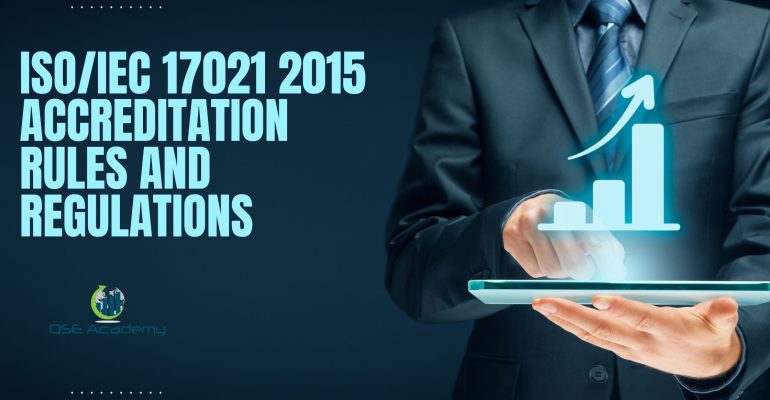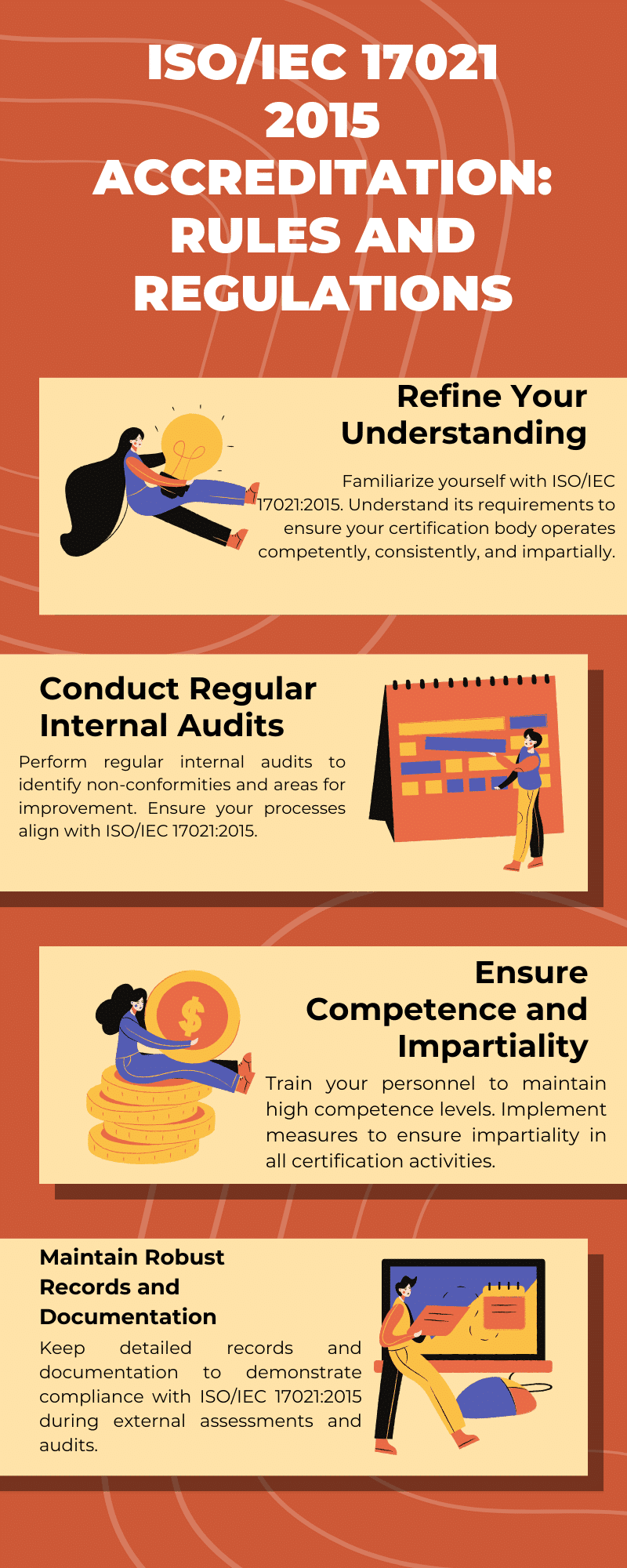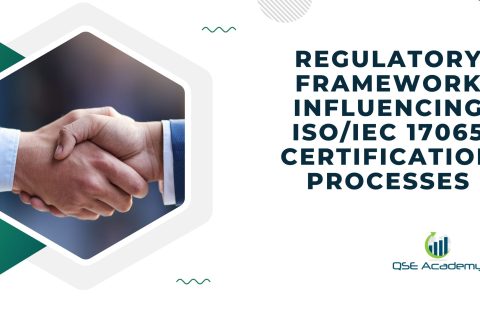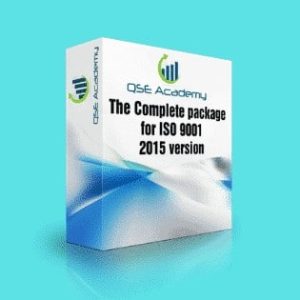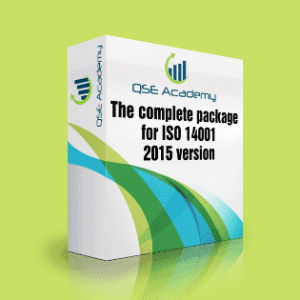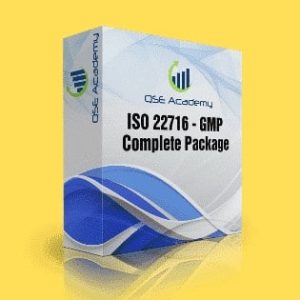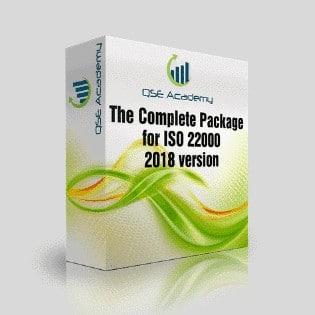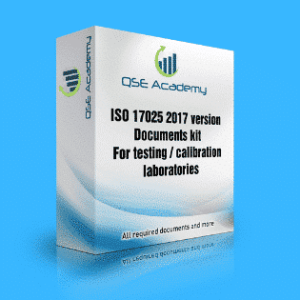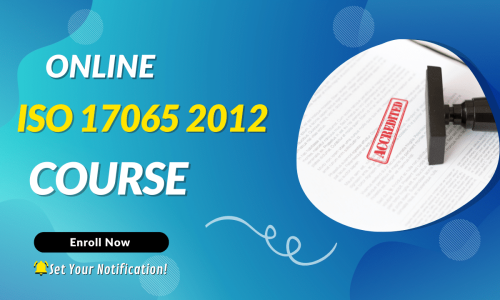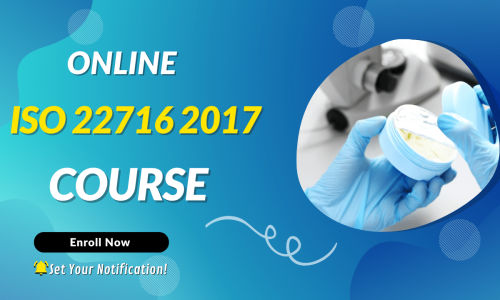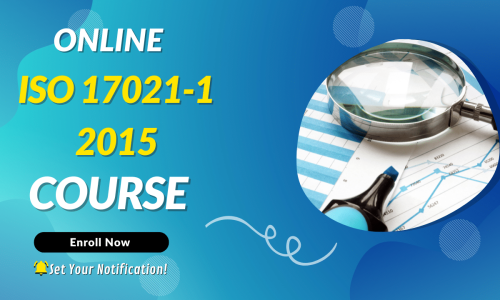ISO/IEC 17021 2015 Accreditation:
Imagine a world where trust in the quality of services and products is a given. ISO/IEC 17021:2015 accreditation is a cornerstone in building that trust. As a specific set of rules dedicated to ensuring that certification bodies operate impartially and competently, these regulations structure the backbone of global certification processes.
The ISO/IEC 17021:2015 standard not only formalizes how an organization should evaluate others, but it also communicates reassurance to consumers and businesses alike. For any entity seeking recognition for its credibility, understanding and complying with this standard is paramount.
This article navigates through the maze of ISO/IEC 17021:2015, from the intricate requirements for gaining accreditation to the procedures for maintaining it. Whether you’re a business striving for excellence, a certification body polishing its credentials, or a curious individual, this is your guide through the detailed landscape of rules, regulations, and rewarding outcomes that revolve around ISO/IEC 17021:2015 accreditation.
Introduction:
ISO/IEC 17021:2015 is a pivotal standard for conformity assessment, specifically designed to set forth criteria for bodies providing audit and certification of management systems. This standard is essential for ensuring that certification bodies operate in a competent, consistent, and impartial manner. The importance of ISO/IEC 17021:2015 cannot be overstated, as it underpins the trust and assurance that businesses and consumers place in the certifications granted for various management systems such as ISO/IEC 9001 for quality management or ISO/IEC 14001 for environmental management.
Accreditation in accordance with ISO/IEC 17021:2015 is a testament to the integrity and expertise of certification bodies, serving as a credential that distinguishes reputable organizations in the industry. Through this article, readers will unpack the nuances of the ISO/IEC 17021:2015 standard, gaining a comprehensive understanding of its role in the certification landscape. The content will delve into the specific requirements laid out by the standard and explain why adherence to these rules is vital not just for certification bodies but also for the organizations they certify. This knowledge is critical for anyone involved in the certification process, from quality managers to organizational leaders aiming to enhance their business credibility.
Understanding ISO/IEC 17021:2015 Accreditation
ISO/IEC 17021:2015 is an internationally recognized standard that specifies the requirements for certification bodies providing audit and certification of management systems. Its purpose is to enhance the competence, consistency, and impartiality of these bodies. By adhering to this standard, certification bodies demonstrate their ability to offer services that meet both customer needs and applicable regulatory requirements.
The benefits of achieving ISO/IEC 17021:2015 accreditation are manifold. For certification bodies, it serves as a benchmark of reliability and integrity, assuring clients that the certifications awarded are credible and based on competent assessments. It also facilitates the recognition of certifications globally, which is crucial for businesses operating in multiple countries. Further, it helps organizations reduce the risk of poor selection by enabling them to choose a competent certification body, streamlining their path to process and system improvement.
Applicable to all bodies providing audit and certification to management systems, the scope of ISO/IEC 17021:2015 encompasses several areas, including the necessary principles and practices for conducting management system certifications effectively. This inclusivity makes it suitable for a diverse range of management systems certifications, such as quality, environmental, and safety management systems.
In essence, ISO/IEC 17021:2015 is the standard to which certification bodies turn to ensure they are capable of assessing management systems with the required level of expertise, impartiality, and operational integrity, thereby building trust among clients, regulators, and the market at large.
Key Requirements for Accreditation
ISO/IEC 17021 accreditation sets forth stringent requirements that certification bodies must meet to ensure they operate in a competent, consistent, and impartial manner. One of the cornerstone elements is the maintenance of impartiality throughout the accreditation process. Certification bodies must implement strict measures to ensure their decisions are not influenced by any other activities or relationships that could result in a conflict of interest. This includes policies and procedures that uphold independence and constantly monitor and mitigate any risks to impartiality.
ISO/IEC 17021 accreditation requires certification bodies to demonstrate the competence and qualifications of their personnel. This encompasses all individuals engaged in the certification process, including auditors and technical experts. The criteria for selection, training, and evaluating such personnel are rigorous, demanding not only relevant technical knowledge but also the necessary skills to perform assessments effectively and impartially.
A robust management system is at the heart of a certification body’s operations under ISO/IEC 17021. This system must cover aspects like document control, record-keeping, and the management of information. It acts as the backbone that supports the certification body’s processes and ensures consistency in the services provided. Compliance with these management system requirements is vital to ensure transparency, accountability, and continuous improvement in the certification process.
In summary, the key requirements for ISO/IEC 15021 accreditation emphasize the unquestionable integrity and professional competence of certification bodies, along with the robustness of their managerial practices. Here is a high-level overview of these fundamental elements:
- Impartiality and Independence: Ensuring unbiased operations and decision-making.
- Competence and Qualifications: Empowering personnel with the expertise and skills required for the accreditation.
- Management System Requirements: Establishing comprehensive systems for effective process management.
Accreditation Process
ISO/IEC 17021 accreditation is a significant recognition for organizations that certify management systems. The accreditation process is meticulously designed to ensure the competence and impartiality of the certifying bodies. Here is an overview of the key steps in the ISO/IEC 17021 accreditation process:
Application for Accreditation:
Organizations seeking accreditation must first submit an initial application along with relevant information about their operations, processes, and competencies.
Pre-Assessment Activities:
Before the on-site assessment, a pre-assessment review is conducted. This involves the organization preparing and gathering necessary documentation and information that demonstrate their compliance with ISO/IEC 17021 standards.
On-Site Assessment:
The central part of the accreditation process is the on-site assessment. Evaluators visit the applicant’s facilities to review procedures, records, and practices in person. They also interview personnel to collect evidence of the organization’s ability to adhere to the ISO/IEC 17021 criteria.
Here’s a brief tabular overview of the accreditation workflow:
| Stage | Key Activities |
| Application Submission | – Submit initial application– Provide required information |
| Pre-Assessment Preparation | – Document review– Evidence gathering |
| On-Site Assessment | – Physical review of procedures– Interviews with personnel |
Each of these stages is critical, and non-compliance or gaps identified during any phase must be addressed to proceed to the subsequent steps. The thorough nature of the process aims to foster trust and confidence in the certifications issued by accredited bodies.
Decision-Making and Granting Accreditation
In the accreditation process, a critical aspect is the objective review of assessment findings. This involves a thorough analysis and careful consideration of the results, with a special focus on identifying any non-conformities and pinpointing areas for improvement. The decision-making criteria must be clear-cut to maintain the integrity and efficacy of accreditation.
| Criteria | Description |
| Impartiality | Ensuring decisions are unbiased and fair. |
| Competence | Confirming that decision-makers have the necessary knowledge and skills. |
| Evidence-based | Decisions are grounded in accurate and reliable assessment data. |
When granting accreditation, the process is formal and systematic. Accreditation bodies adhere to stringent rules to certify that organizations meet the ISO/IEC 17021 standard. Upon a decision to grant accreditation, organizations receive an official certificate, serving as recognition of their compliance. This certificate is a symbol of credibility and a commitment to quality, aimed at fostering trust among stakeholders.
Communication of results is integral, ensuring transparency. This last step solidifies the accreditation process, providing organizations with the credentials needed to operate with a recognized seal of excellence.
In short, the accreditation decision and granting act as a final endorsement of an organization’s capability to perform to the established standards, reinforcing the value of continuous improvement and adherence to quality processes.
Surveillance and Reassessment
ISO/IEC 17021 accreditation represents the requirements for bodies providing audit and certification of management systems. Vital to this accreditation is the process of ongoing surveillance and reassessment to ensure that certified entities continuously adhere to the standards.
Ongoing Surveillance
Purpose and Frequency: The primary intention behind surveillance activities is to monitor the compliance of the management system with ISO/IEC standards. The frequency of these activities is generally determined during the initial assessment phase and is outlined in the certification agreement. Surveillance audits should ideally occur at least once a year, though the specifics can vary depending on the complexity and performance of the organization’s management system.
Conducting Audits: Surveillance audits are necessary for maintaining accreditation. These audits focus on assessing key performance metrics, adherence to the standard, and the effectiveness of any changes made since the previous audit. The audit also ensures that non-conformities identified during prior audits have been appropriately addressed.
Reassessment for Continued Accreditation
Requirements: Reassessment is an in-depth evaluation akin to an initial audit and is generally conducted every three years. The reassessment confirms the ongoing conformance and effectiveness of the management system as a whole.
Planning and Conducting Activities: Reassessment involves detailed planning, which includes reviewing previous audits, current documentation, and changes to the management system. The reassessment might lead to the renewal of the certification, issuing of new certificates, or, in cases of non-compliance, suspension or withdrawal of certification.
In summary, the diligent process of surveillance and reassessment is fundamental to ensure ongoing compliance with ISO/IEC 17021 accreditation—a crucial aspect for maintaining the integrity and credibility of management system certifications.
Handling Non-Conformities
In the process of ISO/IEC 17021 accreditation, managing non-conformities is central to maintaining the integrity and continual improvement of certification bodies. Non-conformities during audits are categorized chiefly into two types: major and minor.
Major non-conformities are those that exhibit a significant deviation from the requirements of the standard or present a situation that poses a serious inefficiency or failure in the management system. They require immediate attention and must be addressed before the certification can be granted or maintained. On the other hand, minor non-conformities refer to a situation where a process does not meet a specified requirement, but the overall effectiveness of the management system remains uncompromised.
Documentation & Categorization Non-conformities must be properly documented, detailing the nature of the non-compliance and the evidence found. The certification body should ensure that they are categorised accordingly, facilitating the establishment of a tailored corrective action plan.
Corrective Actions & Follow-Up Upon detecting non-conformities, the certification body develops and puts into action a corrective plan to rectify the issues. This involves a re-evaluation of processes and may require additional audit activities. The effectiveness of these corrective measures is then monitored and verified by the certification body to ensure non-conformities are resolved and do not recur.
Appeals & Disputes Certified organizations have the privilege to appeal against decisions concerning non-conformities. ISO/IEC 17021 requires certification bodies to have a clear and transparent process for handling these appeals. Similarly, in case of disputes, the regulation stipulates a fair and systematic approach for resolving such issues, thereby maintaining trust and accountability in the certification process.
Handling non-conformities with diligence ensures the credibility of the accreditation process and contributes to the continual improvement of the management systems in question.
Special Considerations in Accreditation
ISO/IEC 17021 accreditation provides a framework for bodies that conduct audit and certification of management systems to ensure competence, consistency, and impartiality in their operations.
Special Considerations in Accreditation:
Use of External Experts: Accreditation bodies may employ external experts to supplement their internal competences. Criteria for their selection include relevant experience, technical knowledge, and adherence to confidentiality and impartiality requirements. Moreover, there must be processes in place to manage potential conflicts of interest when these experts are engaged.
Managing Conflicts of Interest: To maintain trust in the accreditation process, bodies must have stringent policies to identify and manage conflicts of interest, ensuring decisions are made objectively and with integrity.
Outsourcing Accreditation Activities: Criteria for outsourcing activities must guarantee that the subcontractors are competent and comply with the same standards as the accreditation body itself. The quality and competence of outsourced activities must be ensured through regular monitoring and evaluation.
International Accreditation: Engagement in mutual recognition arrangements (MRAs) enables international cooperation and streamlines the accreditation process across borders. While there are immense benefits to such arrangements, including increased global market access and reduced need for multiple certifications, they also present challenges. These challenges involve the alignment of standards and maintaining consistent application of accreditation principles among diverse international bodies.
In summary, special considerations in accreditation like the judicious use properties of external experts, managing conflicts of interest, and diligent outsourcing are critical for the integrity of ISO/IEC 17021 accreditation. Moreover, the push for international accreditation under MRAs brings both efficiency and complexity to the certification landscape.
Conclusion
In conclusion, ISO/IEC 17021:2015 accreditation stands as a pivotal mark of excellence for bodies providing audit and certification of management systems. It acts as a bedrock of trust and credibility in the global marketplace. By adhering to its stringent regulations, certification bodies demonstrate their commitment to delivering services that meet the highest standard of quality and efficiency.
This accreditation confers numerous benefits. It not only enhances the legitimacy of certification bodies, making them more attractive to businesses seeking solid and reliable partners but also ensures that their certification processes are carried out in a competent, consistent, and impartial manner. The rigors of ISO/IEC 17021 help maintain the integrity of the certification process, which in turn benefits the industry as a whole.
Organizations considering ISO/IEC 17021 accreditation should recognize its integral role in supporting quality management across various sectors. The ongoing evolution of this accreditation reflects the dynamic nature of quality assurance and the continual advancement towards higher standards. Thus, the pursuit of ISO/IEC 17021 accreditation is not just an investment in credibility but also a strategic move towards operational excellence and market leadership.
Looking for More Resources on ISO 17021?
If you found this article helpful, explore our premium resources designed to help you achieve ISO 17021 certification efficiently:
- 📦 Complete Documentation Package for ISO/IEC 17021-1 2015: Get all the essential templates and documents you need for fast, easy implementation.
- 🎓 Online Course on ISO/IEC 17021-1 2015 : Enroll in our comprehensive training to master the key concepts and practical steps toward certification.
- 📋 ISO/IEC 17021-1 2015 Checklist: Download our detailed checklist to ensure you’ve covered every step of the process.
These resources are tailored to meet your needs and ensure a smooth certification journey. Explore them today and get one step closer to success!

